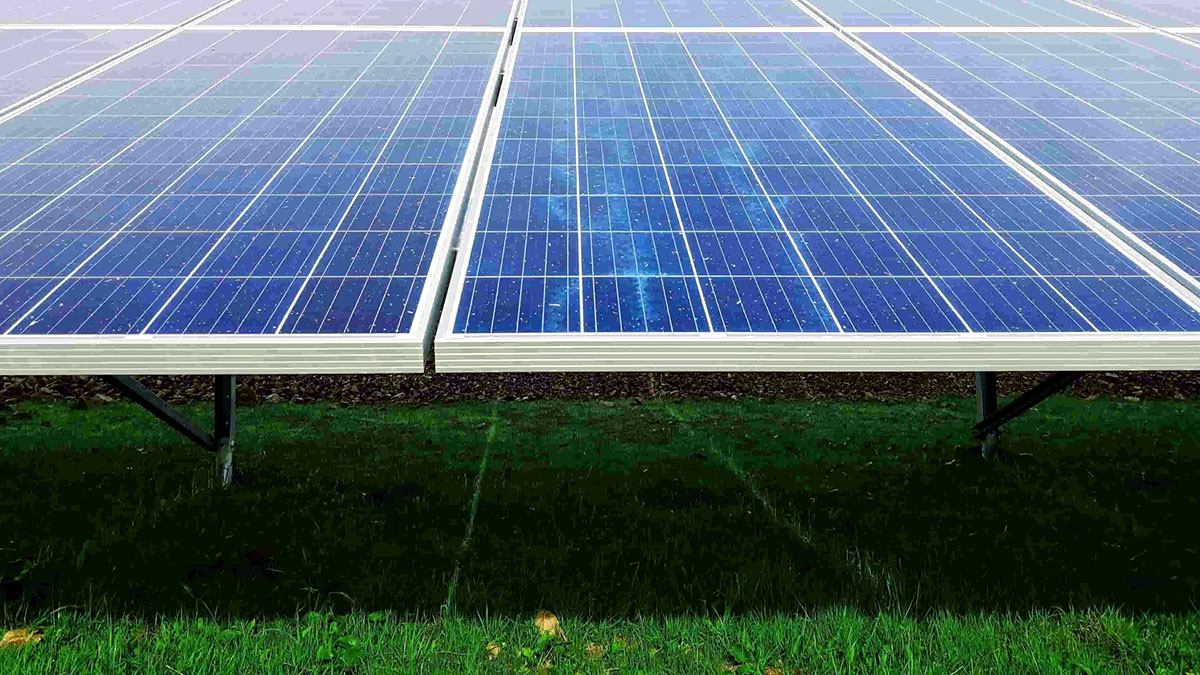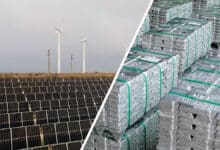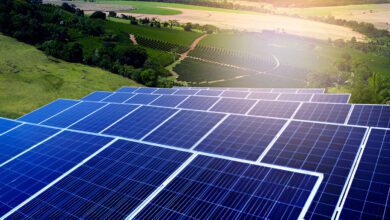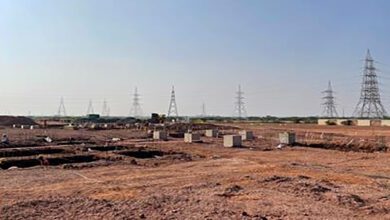While solar parks are being encouraged for providing clean energy, environmentalists and local communities in Rajasthan are concerned over their impact on the natural vegetation of the desert state. On Wednesday, riled by the felling of trees for setting up solar parks in Phalodi here, thousands of people from the Bishnoi community held a protest at Badi Sid village.
They alleged indiscriminate clearing of the desert landscape by uprooting of trees like Khejadi and the state tree Rohida along with native species of shrubs and grasses by these companies.
Recently, approval was given to eight companies to set up solar power plants in Badi Sid in Phalodi, with thousands of hectares of land taken by the companies on lease from the locals.
In order to clear the land for plants, these companies have been clearing the trees and other vegetation, which has worried local communities and environmentalists.
Demanding a detailed survey of the entire region to ascertain the loss of trees, the president of Akhil Bhartiya Bishnoi Mahasabha Devendra Budia claimed that 40% of the area has already been cleared of the trees, and it is continuing unabated.
The community and environmentalist, concerned about the fragile biodiversity of the desert, have been expressing their concern over the devouring of vegetative land of the desert by solar plants and windmills,
“It was shocking for us to have seen a large number of trees fallen and buried in the ground in Moderi Nadi to hide their deed.
“Seeing the burgeoning threat to the trees and wildlife here, we decided to take up the issue with the government”, said Bhagwan Das Jambha, a priest who visited the site of dumping of trees with villagers and called the locals to assemble in Badi Sid for the demonstration.
The community members have demanded a master plan for solar plants in the desert and the allocation of barren or rejected land parcels, which do not have any vegetation, for the power plants.
They also demanded adding a condition in the agreement to plant trees on 30% land of a power plant, besides extensive plantation around the site.
With the world’s biggest solar plant cluster at Bhadla in Phalodi, spread over a total area of 5,700 hectares with a total capacity of 2,245 MW, the vast swathes of desert land have been fast turning into a mecca for solar power companies.
But while these plants have triggered rivalries among locals, cast and political groups to obtain contracts for works, they have also caused enormous concern to the environmentalists who fear that the desert ecology will be disturbed.
Anil Chhangani, Head of the Department (Environment Science) at Maharaja Ganga Singh University (MGSU) in Bikaner, pitched for an audit of all power plants in the desert to assess their feasibility and any damage they caused to the environment and wildlife in the desert.
He said that due to the mass felling of trees for these power plants, not only is the habitat of many species threatened, but the natural vegetation that sustains livestock has also become sparse.
And with no fodder and water, the animals have been dying, he said.













